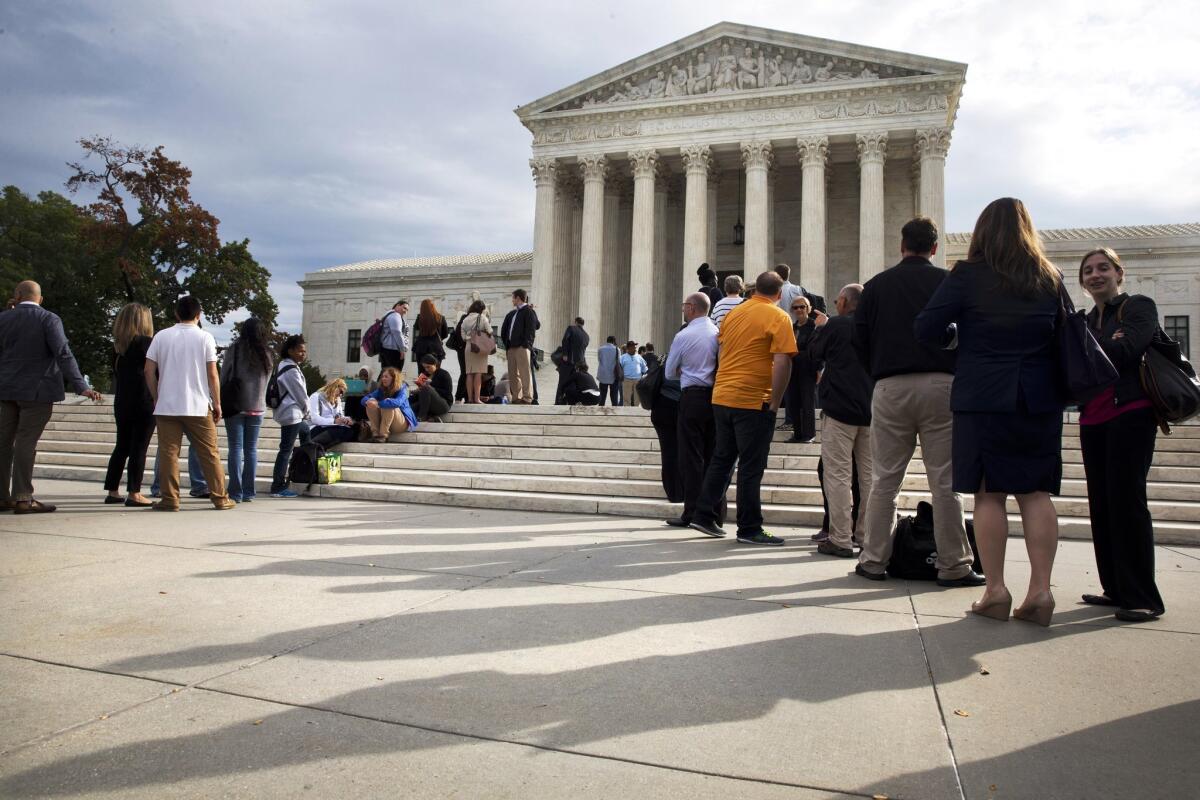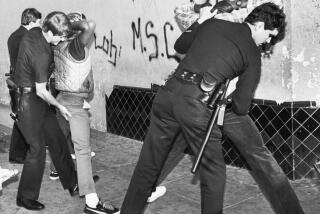Editorial: The absurdity of life without parole for juveniles

Despite their robes, judges are not wizards. They have no conjuring superpowers that allow them to see through juvenile offenders and know the course of their adult lives in prison. Nor are they equipped to determine, today, whether any particular offenders will have a sufficient change of heart, mind and spirit that would warrant their release 10, 20, 30 or more years in the future.
So it is absurd to grant judges the power to brand any particular juvenile they see in front of them as “incorrigible” or so beyond redemption that no future judge or parole board should ever be able to consider how the offender had lived his or her life as an imprisoned adult.
The issue arises because the U.S. Supreme Court recently agreed to review the case of Brett Jones, who at 15 killed his grandfather and was sentenced to life without the possibility of parole. Jones appealed on the ground that the judge imposed the sentence without first making a finding that the teen was “permanently incorrigible.” The state of Mississippi argues that such a finding was unnecessary.
Arguments are not yet set, and the case may not be heard until the next term, which begins in October.
Over the last several years, the high court has begun to acknowledge what has long been known by most psychologists, neurologists, nations, state courts and, indeed, average people: Juveniles are not the same as adults. Their still-undeveloped brains make them more impetuous, more emotional, less capable of making moral judgments, more capable of eventual rehabilitation. Less moral capacity means less criminal culpability — and a different level of punishment.
In 1988, the court banned the death penalty for offenders under age 15. In 2005, the court extended the ban to offenders under 18. In 2010, it ruled that juveniles cannot be sentenced to life without parole for non-homicide cases. In 2012, it banned automatic life sentences without parole for juveniles. In 2016, it said the previous ruling applied retroactively.
The justices have acknowledged again and again that juveniles are different and should be treated differently — but they’ve done it incrementally and at a creeping pace that leaves the United States as the only nation on the globe where it is still possible to sentence people to life without parole for crimes they committed before they turned 18. They made a point of noting that they’d left a window open for “the rarest of juvenile offenders, those whose crimes reflect permanent incorrigibility.”
Unfortunately, the question before the court in Jones vs. Mississippi is not whether Jones’ judge had the superhuman ability to foresee whether the offender would change in prison, but whether it matters that he failed to make a finding on the record of “incorrigibility” or “irreparable corruption” or “irretrievable depravity” or any other term that suggests that a judge can magically know more about a young offender today than anyone else would know in the future.
These are all terms that, as applied to juvenile offenders, are as meaningless as “abracadabra.” They cannot imbue any judge with access to a young killer’s future psyche, no matter how horrid the details of the crime. Reading a crime for evidence of the defendant’s imperviousness to change makes no more sense than reading his palm.
Rather than being magic, words like “incorrigible” actually indicate superstition and fear. They symbolize the folk belief that we can know the full measure of a man based only on his heedless actions as an adolescent, or the companion belief that some young people are superpredators, essentially subhuman, and unable ever to live in civilized society. That’s at stark odds with our society’s religious faith that people can change and our scientific knowledge that they often do.
Prison may not be an ideal place for teenagers to grow into adulthood, but it is there that young killers will mature and have time — plenty of time — to look back on the crimes of their youth with the developed brains and perspectives of adults. They may take the opportunity to seek education. They may learn empathy. They may feel remorse. They may be rehabilitated.
Or they may not, but who’s to know? Their lives and their progress should be reviewed by parole boards or judges who have the benefit of considering the perpetrators’ adult conduct over many years in prison.
The justices one day will have to acknowledge that their exception for “incorrigible” youth says less about any offender than it does about adult fears, prejudices and superstitions. It’s a shame that they won’t be discussing that question in the case of Brett Jones.
More to Read
A cure for the common opinion
Get thought-provoking perspectives with our weekly newsletter.
You may occasionally receive promotional content from the Los Angeles Times.






